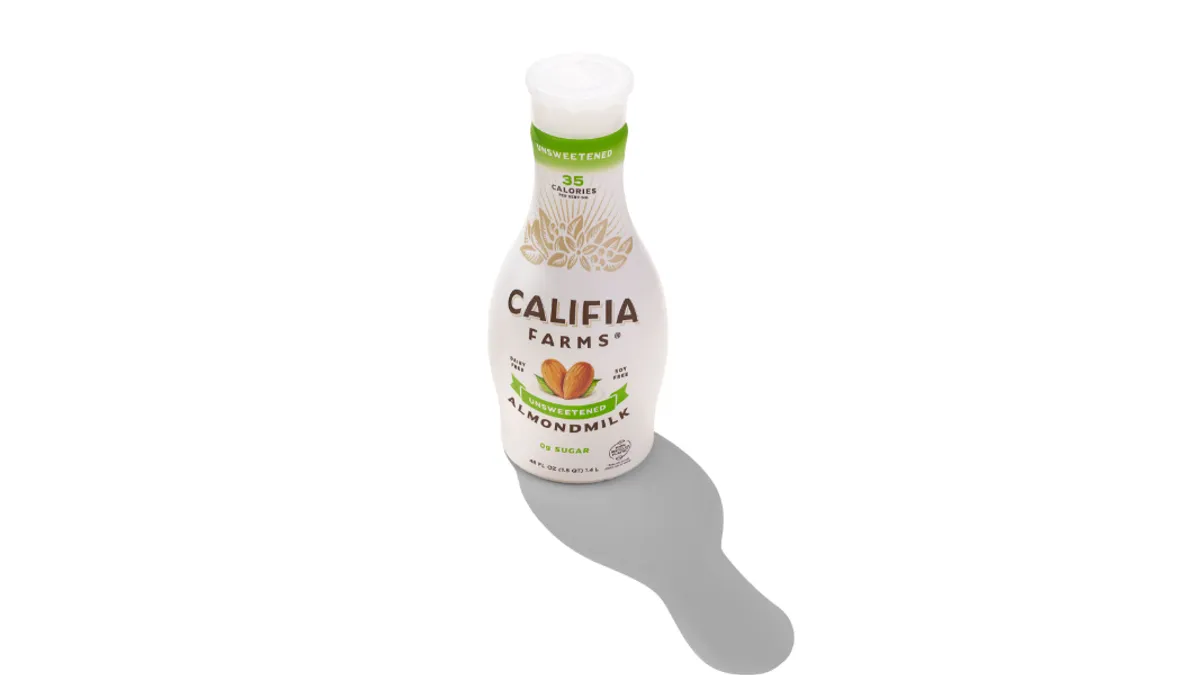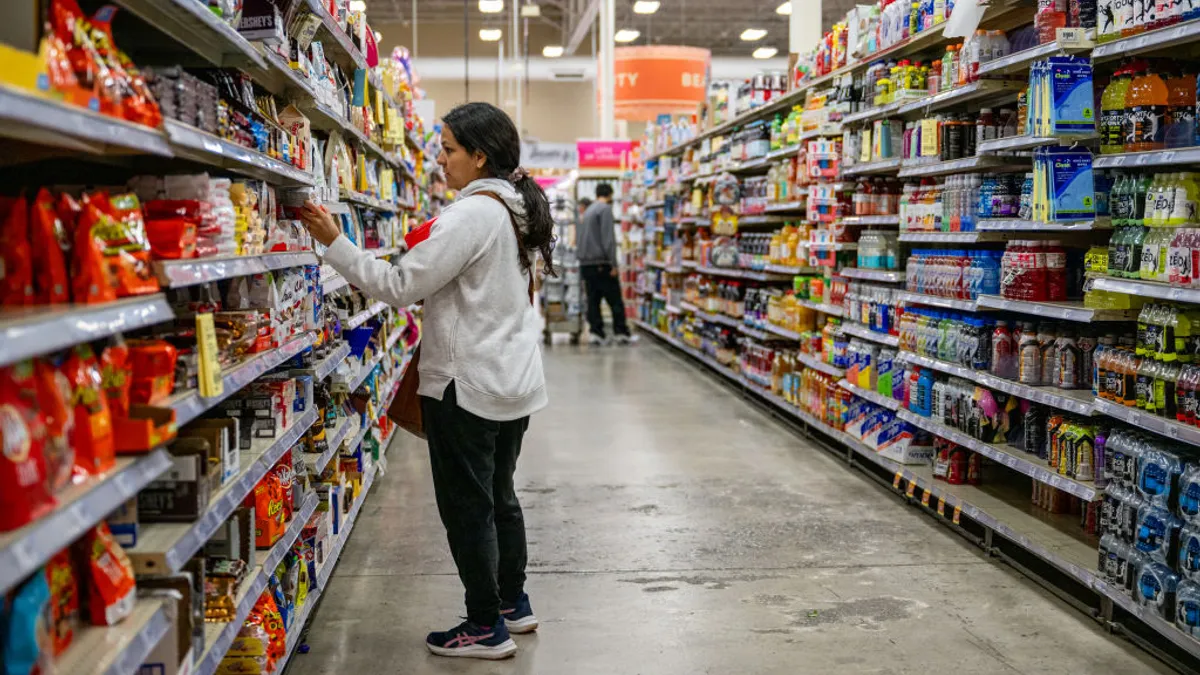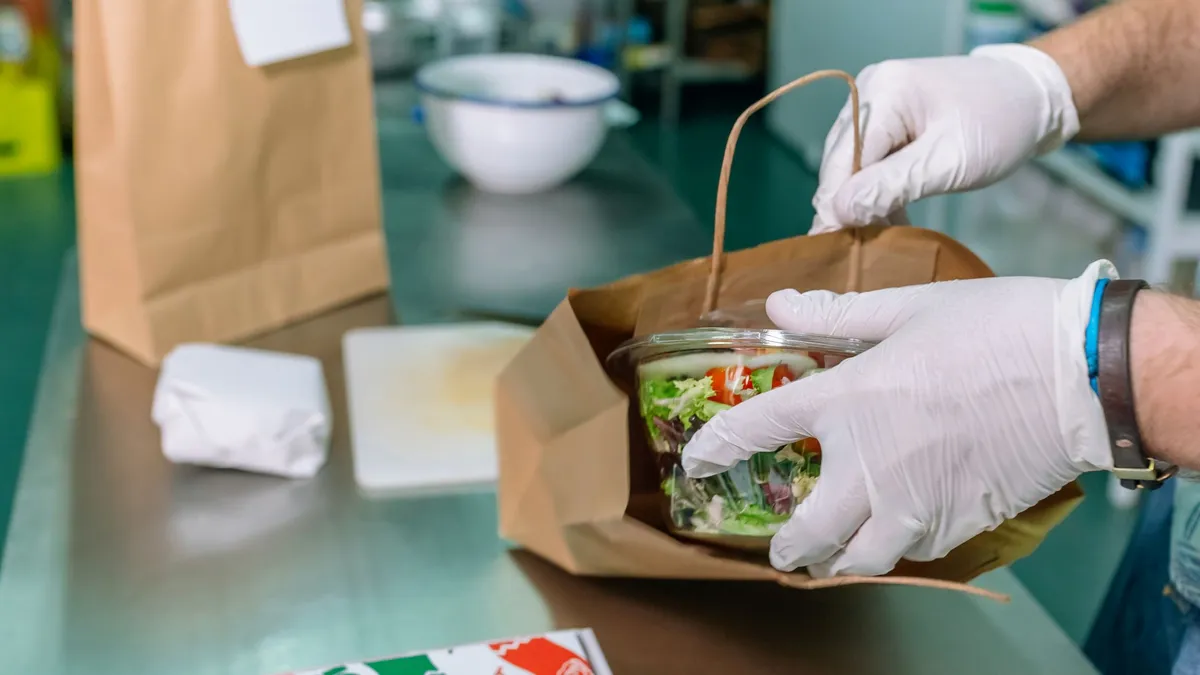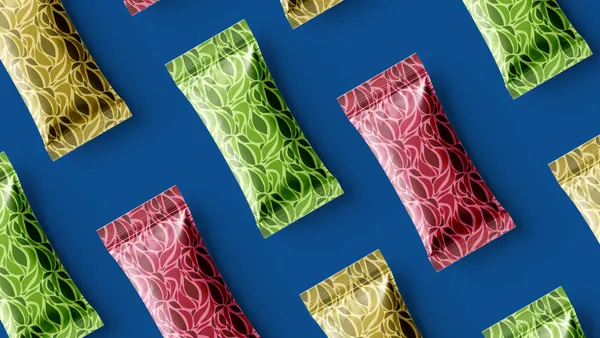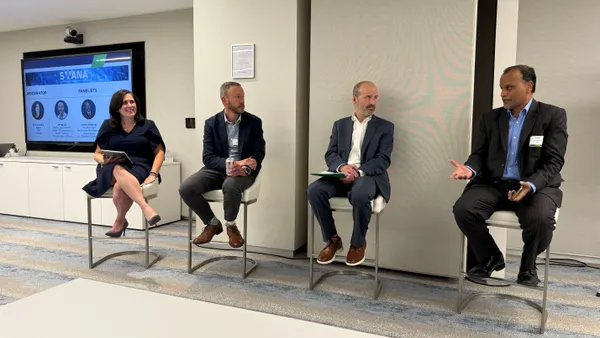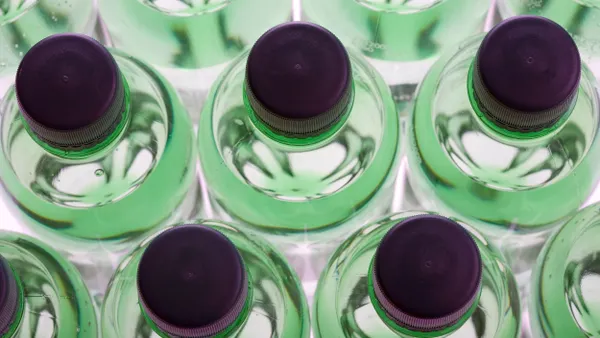Dive Brief:
- Califia Farms, which makes plant-based beverages, is transitioning its bottles in the U.S. and Canada to 100% recycled PET. The company previously set goals to achieve 100% recyclable packaging and use 100% rPET in its bottles by 2030.
- The company has not yet found a cap or sleeve solution made with recycled resins “that meets all of our internal requirements,” said Ella Rosenbloom, vice president of sustainability, in an emailed statement. Califia Farms is hoping for more innovation in the industry “so that one day this can be possible for us.”
- The California-based brand did not disclose which manufacturer is supplying the bottles, but said it sources recycled material from some of the largest rPET producers in the U.S. “We have been working closely with our suppliers on the question of continued availability, especially critical to us because of our conversion to 100% rPET,” Rosenbloom said.
Dive Insight:
Developing bottles made entirely from recycled plastics has been an attractive target for brands looking to reduce virgin plastic use in line with corporate goals and to give consumers a firsthand touchpoint to those sustainability initiatives. Coca-Cola, Pepsi, Fiji Water and Nestlé Waters are some of the beverage labels that have rolled out 100% rPET bottles on certain products in specific geographies.
Some brands worry about an adequate rPET supply to support these transitions going forward and are seeking solutions. At the same time, some reclaimers say demand for recycled materials has grown slower than expected. For Califia Farms, long-term contracts and deep relationships make the company “confident that our demand requirements will be met,” Rosenbloom said.
The North American bottle conversion has already happened for Califia Farms, whose product offerings include oat milk, almond milk and coffee creamers. The company still plans to refresh the packaging with QR codes leading to information for consumers about the rPET transition.
“By moving to 100% rPET for our iconic curvy bottle, we're taking a major step in reducing our reliance on virgin plastic and advancing the principles of a circular economy,” CEO Dave Ritterbush said in a press release Tuesday.
Califia Farms estimates that efforts to lightweight its packaging — including bottles, caps and labels — between 2019 and 2023 collectively avoided the production of 4 million pounds of plastic. According to the company’s 2022 sustainability report, packaging accounts for 33% of its scope 3 emissions.
That year, Califia Farms had projects to change the caps on multiple products to smaller versions and began working with a co-manufacturer to lightweight its bottles. Also in 2022, Califia Farms updated its labels. The PET shrink film sleeves allow the bottles to be sorted into the proper stream at recycling facilities.
In 2023 the company completed the conversion of all of its shrink sleeves to have washable inks, Rosenbloom said.
“During the recycling process, the inks release from the label, creating a clean stream of clear PET flakes. When this is achieved, our label can then be recycled with the bottle flake, boosting recycling yield and diverting packaging waste from landfills,” the company wrote in the 2022 report. “This means no need to remove labels from our bottles before tossing in your recycling bin.”
Aside from plastic bottles, the company has also sold barista blend beverages in Tetra Pak cartons. The 2022 report said the cartons were more than 70% paperboard by weight and the the cap and carton coating were made from sugarcane.



